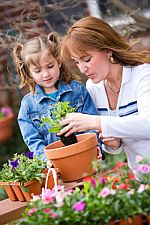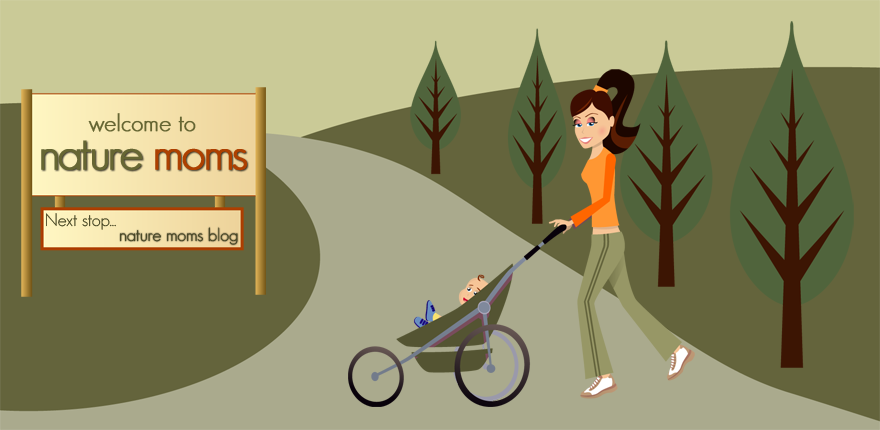Create a Children's Garden
 A children's garden is an excellent way to create a safe, summer
place to continue learning. In his own garden a child can observe
and discover while he interacts with nature.
A children's garden is an excellent way to create a safe, summer
place to continue learning. In his own garden a child can observe
and discover while he interacts with nature.
An ideal children's garden will be completely safe and kid friendly.
This means no chemical fertilizers or pesticides. Any manure used
should be sterilized, or use compost for fertilizing. Weeds can be
removed with a hoe.
Use plastic supports rather than wood for vines. Round edges if you
have raised beds or border the edges with soft round flowers for
safety.
Choose an area that will be close to the water supply so the child
will be able to water the garden without difficulty. Providing child
size garden tools will make it easier to master garden tasks. The
child will gain confidence and find it more enjoyable.
Talk to the child about where and what to plant. Instruct the child
how the plants need sunshine, water and healthy soil. Establish a
sense of ownership by giving the child his own plot, starting small
so as not to overwhelm him. Encourage him to name his garden.
Plant vegetables that the child loves to eat. Choose ones that are
colorful, come in various sizes, and easy to grow from seed. Large
seeds will be easier for the child to plant Plants that sprout
quickly, and grow fast, will hold the child's interest and give him
a sense of pride.
Cucumbers, beans, and zucchini all have large seeds and are easy to
grow. Cherry tomatoes and radishes, although having small seeds produce rapidly.
although having small seeds produce rapidly.
Colorful flowers can be added to the garden for a dramatic effect.
Sunflowers, and marigolds are bold and easy to grow. A bird feeder
or birdbath will bring life to the garden.
Place a bench or swing close by where the child can sit and read or
show off his garden to friends. Boulder stones can be placed in the
garden, which can also be a place to sit. Arouse the child's
curiosity in insects, worms, and the sprouting seeds.
Create learning activities that are fun for the child. With the aid
of a picture book involve the child in identifying the birds that
visit the garden. Painting the boulder stones can provide hours of
activity. Make a scarecrow or name plaque for the garden. Concrete
footprints can be made and placed in the garden.
A garden will provide your child opportunity to utilize all his
senses as he experiences the unpredictability of nature. The child's
imagination can run free and his creativity will blossom.
Children's Gardening Books:

